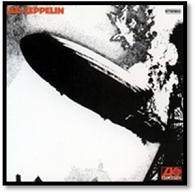 Or maybe it’s partly sunny, depending on your perspective.
Or maybe it’s partly sunny, depending on your perspective.
In Sunday’s New York Times, there was an article devoted to radio (“High-Tech Product, Low-Tech Pitch”), focusing on the power of radio advertising – especially for technology products like the Barracuda Load Balancer and Citrix (GoToMeeting).
In fact, the article also praises small market radio, noting that while large and medium markets are effective, Barracuda also focuses its efforts on small town radio.
That sounds great, right? But it gets better. Reporter Randall Stross also points out that testimonial advertising can be especially powerful as “radio as a medium is particularly well-suited for endorsements. On radio, spoken words can create a brief sense of personnel connection with each listener, in a way newer media can’t really match.” The RAB couldn’t have said it better.
So what’s the partly cloudy part of the story?
Stross reports that because many of radio’s traditional advertisers have left the medium for digital platforms, spots have become insanely cheap. And as Michael Perone, Barracuda’s EVP and CMO, notes, “We discovered radio was unnaturally inexpensive.”
Perone also points out that smaller market radio stations are so “unsold” that they’re beginning to sound like non-profits. These stations “need commercials to sound like a radio station.”
A few years ago, a friend of ours who was the head of media for one of the agencies that handled the advertising for a Big 3 automaker called us. He wondered whether radio had some sort of problem because he was noticing that it was becoming commonplace to put out an avail and radio would come in under the cost-per-point. Not a single station or a cluster, but the entire market. It allowed him extra budget to buy Internet ads, but in the process, he felt it made the radio industry look bad because it was undervaluing itself.
Sadly, radio is a victim of self-inflicted wounds. As has been the case for a long time now, it’s frequently on the sales end. The medium has failed to get its fair share of ad dollars, especially based on overall consumer usage of media.
And as an advertising vehicle, radio can produce stellar results as this new article points out. Yet, “value added,” giveaways, remotes, and accepting ads that are incongruous with a station’s format and target audience are all part of the brand erosion process.
Collectively, the medium suffers.
A lack of pride in and understanding of the product’s value is at the root of these perceptions. I spoke to a programmer the other day whose morning show is one of the best in radio. For the holidays, the station is planning on producing a “best of” CD, and at a recent sales meeting, this PD was talking it up to his sales team to motivate them to sell sponsorships.
 But one of the sales managers spoke up, and in the process ratcheted down sales expectations: “Let’s face it – our show isn’t exactly Led Zeppelin.”
But one of the sales managers spoke up, and in the process ratcheted down sales expectations: “Let’s face it – our show isn’t exactly Led Zeppelin.”
And so the brand erosion continues. For this station’s audience, the morning show is as important as Led Zeppelin.
And marketers like Barracuda’s Marc Wolfe understand the power of an endorsement of a show like this one. He points out that his company’s radio ads are designed to “ignite a conversation with as many influencers in a single organization as possible.”
It sure seems like in actuality, many advertisers and clients are more impressed with the power of radio than those tasked with selling it.
Radio has no shortage of external challenges – Pandora, Groupon, and other new players. But maybe the best way to improve things is to look in the mirror, block out those negative voices, and start thinking positive thoughts about our medium.
Until then, it’s definitely looking like rain.
- Can Radio Win “The Last Touch/First Touch Challenge?” - April 4, 2025
- How Will Radio Fare In The Battle For The Fourth Screen? - April 3, 2025
- Like A Pair Of Old Jeans - April 2, 2025




Hello just wanted to give you a brief heads up and let you know a
few of the images aren’t loading correctly. I’m not sure why but I think its a linking issue.
I’ve tried it in two different browsers and both show the
same outcome.
Thanks, I’ll check into it.